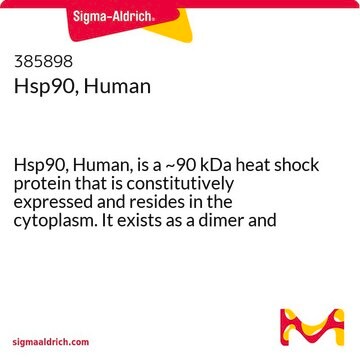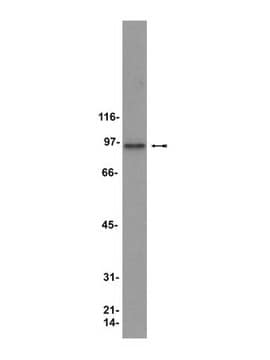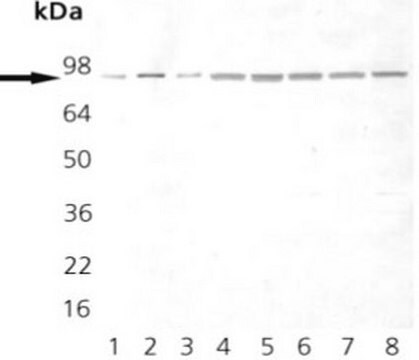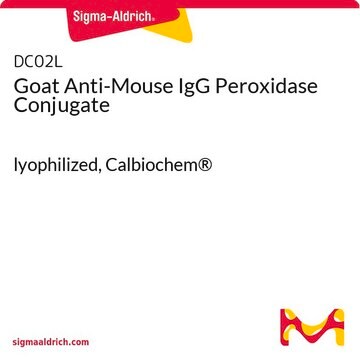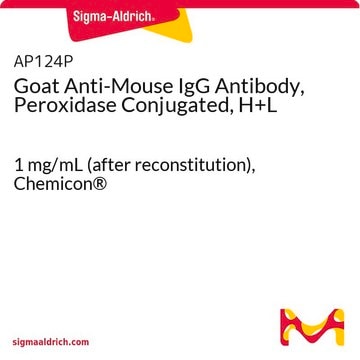H1775
Monoclonal Anti-Heat Shock Protein 90 antibody produced in mouse
clone AC-16, ascites fluid
Synonym(s):
Anti-EL52, Anti-HEL-S-65p, Anti-HSP86, Anti-HSP89A, Anti-HSP90A, Anti-HSP90N, Anti-HSPC1, Anti-HSPCA, Anti-HSPCAL1, Anti-HSPCAL4, Anti-HSPN, Anti-Hsp103, Anti-Hsp89, Anti-Hsp90, Anti-LAP-2, Anti-LAP2
About This Item
Recommended Products
biological source
mouse
Quality Level
conjugate
unconjugated
antibody form
ascites fluid
antibody product type
primary antibodies
clone
AC-16, monoclonal
mol wt
antigen 88 kDa
contains
15 mM sodium azide
species reactivity
wheat germ, chicken, Sf9 cell line, rabbit, rat, human, mouse, Achlya
packaging
antibody small pack of 25 μL
technique(s)
microarray: suitable
western blot: 1:1,000 using cultured human foreskin fibroblasts
isotype
IgG2b
UniProt accession no.
shipped in
dry ice
storage temp.
−20°C
target post-translational modification
unmodified
Gene Information
human ... HSP90AA1(3320) , HSP90AB1(3326)
mouse ... Hsp90aa1(15519) , Hsp90ab1(15516)
General description
Specificity
Immunogen
Application
Immunohistochemistry (1 paper)
Western Blotting (1 paper)
Biochem/physiol Actions
Disclaimer
Not finding the right product?
Try our Product Selector Tool.
recommended
Storage Class Code
12 - Non Combustible Liquids
WGK
WGK 3
Flash Point(F)
Not applicable
Flash Point(C)
Not applicable
Certificates of Analysis (COA)
Search for Certificates of Analysis (COA) by entering the products Lot/Batch Number. Lot and Batch Numbers can be found on a product’s label following the words ‘Lot’ or ‘Batch’.
Already Own This Product?
Find documentation for the products that you have recently purchased in the Document Library.
Our team of scientists has experience in all areas of research including Life Science, Material Science, Chemical Synthesis, Chromatography, Analytical and many others.
Contact Technical Service

